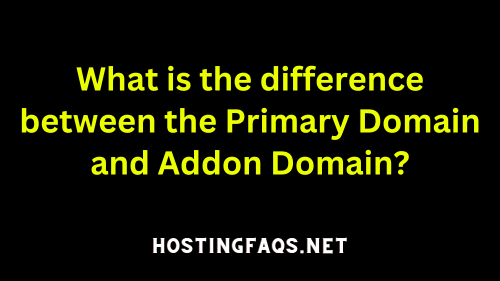In the digital age, where websites act as the front doors to businesses, understanding the technical aspects of web hosting is crucial. Among these, bandwidth remains a key factor that often gets overlooked in the rush to secure a domain or design a website. Bandwidth in web hosting can be the determining factor in how smoothly your website operates, especially under the pressure of high traffic. This article aims to demystify the concept of bandwidth in web hosting, explaining its types and importance, and guiding you on how to calculate and monitor your website’s bandwidth needs.
Web hosting bandwidth is akin to the arteries of your website, determining the flow of data between your site and its users. As your online presence grows, the demand for efficient bandwidth management increases. Here, we’ll explore different types of bandwidth offerings like unlimited, unmetered, and monthly bandwidth, and provide insights into why understanding bandwidth is crucial for your website’s performance. Whether you’re a small business owner, a blogger, or managing a large e-commerce site, this guide will help you navigate the world of web hosting bandwidth with confidence.
What is Bandwidth in Web Hosting?
Many hosting providers offer bandwidth as part of their packages, but what exactly does it mean? Bandwidth refers to the amount of data that can be transferred between your website, its users, and the server over a specific period, typically a month. It’s measured in Megabytes per Second (MB/s) or Gigabytes per Second (GB/s). To visualize, imagine bandwidth as a highway: the wider it is, the more traffic (data) it can handle simultaneously. Therefore, a higher bandwidth means a higher data-carrying capacity.
Why Is Bandwidth Important?
In the world of web hosting, bandwidth is more than just a technical term; it’s the lifeline of your website’s connectivity and performance. Understanding the importance of bandwidth is crucial for anyone who owns or manages a website. Below, we delve deeper into why bandwidth holds such significance and how it can impact your online presence.
- Speed and User Experience: The primary reason bandwidth is so important is its direct impact on the speed at which your website loads and operates. When your website has sufficient bandwidth, it can swiftly deliver content to visitors, even during times of peak traffic. This speed is vital for a positive user experience. Slow-loading websites not only frustrate visitors but also negatively affect search engine rankings. In contrast, a website with ample bandwidth ensures quick load times, keeping users engaged and reducing bounce rates.
- Handling Peak Traffic: Websites often experience spikes in traffic, which could be due to various reasons like marketing campaigns, seasonal traffic, or viral content. High bandwidth allows your website to handle these surges without crashing or slowing down significantly. Without adequate bandwidth, your site might become inaccessible during these critical periods, leading to lost visitors and potential revenue.
- Content Quality and Variety: Bandwidth also dictates the kind of content you can host on your website. With higher bandwidth, you have the freedom to incorporate more dynamic and rich media content like high-resolution images, videos, and interactive elements. Such content can significantly enhance the appeal and engagement levels of your site, but they also require more data to be transferred quickly to the end-user. Limited bandwidth could mean compromising on content quality or variety, which in turn could affect the competitiveness and attractiveness of your website.
- Scalability and Growth: As your business grows, so does the need for more bandwidth. A website that starts small might not require much bandwidth initially, but as it attracts more visitors and adds more content, the bandwidth requirements will increase. Planning for higher bandwidth from the start or choosing a scalable hosting plan can save you from performance issues as your website grows. This scalability is essential for sustaining growth and ensuring that your website can keep up with increasing demands.
- SEO and Online Visibility: Search engines, particularly Google, factor in website speed and performance when ranking sites. A website with inadequate bandwidth that results in slow loading times may be penalized with lower search rankings. This reduced visibility can have a significant impact on your site’s ability to attract new visitors. In contrast, a fast, responsive site, enabled by sufficient bandwidth, is favored by search engines, which can lead to better rankings and increased organic traffic.
- Cost-Effectiveness and Resource Management: Having the right amount of bandwidth ensures cost-effectiveness. Overestimating your bandwidth needs might lead to paying for unused resources, while underestimating can result in additional charges for exceeding limits or, worse, website downtime. Effective bandwidth management means choosing a plan that aligns with your current needs while allowing for future growth, ensuring you get the best return on your investment.
In summary, bandwidth is a critical component of web hosting that affects various aspects of a website’s performance and success. From enhancing user experience to influencing SEO, the right amount of bandwidth can make a significant difference in how well your website serves its purpose. Therefore, it’s important to assess your bandwidth needs accurately and choose a hosting provider that can accommodate your site’s current and future demands.
Different Types of Bandwidth in Hosting
- Unlimited Bandwidth in Web Hosting: This term is somewhat misleading. No bandwidth can truly be unlimited, as there are always physical and infrastructural limits. However, ‘unlimited bandwidth’ usually means that the hosting provider does not monitor the bandwidth usage closely and allows for generous data transfer without strict caps.
- Unmetered Bandwidth in Web Hosting: With unmetered bandwidth, the amount of data transfer isn’t monitored. Instead of having a set limit, the hosting provider allows as much data transfer as possible, up to the maximum capacity of the server’s connection.
- Monthly Bandwidth in Web Hosting: This is a more straightforward approach where a hosting provider allocates a specific amount of bandwidth per month. Exceeding this limit can result in additional charges or a temporary shutdown of your website until the next month’s cycle begins.
How to Calculate Your Bandwidth Needs
Calculating your website’s bandwidth needs is crucial for optimal performance. Here’s how you can estimate it:
- Monthly Visitors: Check your website’s analytics to find out the number of monthly visitors.
- Page Views: Determine the average number of page views per visit.
- Webpage Size: Use tools like GTMetrix or Pingdom to assess the average size of your web pages.
Multiply these three figures to get an estimate of your monthly bandwidth needs: Monthly Visitors x Average Pageviews x Average Web Page Size. It’s advisable to select a hosting plan that offers at least 50% more bandwidth than your current needs to accommodate growth and traffic spikes.
Monitoring Bandwidth Usage
To monitor your bandwidth usage, check your hosting account dashboard. Tools like cPanel provide detailed bandwidth usage information, helping you avoid exceeding your limits. This is particularly important for websites on hosting plans with capped bandwidth.
Conclusion: The Pivotal Role of Bandwidth in Web Hosting
In conclusion, bandwidth in web hosting is not just a feature to be casually considered; it’s a fundamental element that can make or break the success of a website. It affects everything from the speed and responsiveness of your site to its ability to grow and adapt to increased traffic and content demands. Adequate bandwidth ensures that your website can provide a seamless, engaging experience to its users, which is essential in today’s fast-paced digital world.
The right bandwidth capacity enables you to include richer, more dynamic content, enhancing the appeal of your site and keeping visitors engaged longer. It also plays a crucial role in handling traffic spikes, ensuring that your website remains accessible and efficient when it matters most. Furthermore, bandwidth impacts your site’s search engine rankings, with faster sites more likely to achieve higher rankings and attract more organic traffic.
As you choose a hosting plan, consider your bandwidth needs carefully. Opt for a plan that not only fits your current requirements but also allows room for growth. Remember, investing in sufficient bandwidth is investing in the user experience, the reliability, and the future of your website.
Whether you are a small business owner, a blogger, or managing a large e-commerce platform, understanding and adequately provisioning for bandwidth needs will set the foundation for your website’s success. In the realm of web hosting, bandwidth is not just a technical specification; it’s the backbone that supports and drives your online presence.
Best WordPress Hosting for Beginners in 2024
Hosting Company
Why To Buy
Pricing
Latest Deal

Cheapest Shared Hosting With Premium Features
Starts from $0.99/mo.
Up To 80% OFF

Affordable Hosting With Best Performance
Starts from $2.99/mo.
Up To 75% OFF

#1 WordPress Recommended Hosting With Great Features
Starts from $2.65/mo ($8.99/mo).
Up To 70% OFF
Hosting Company | Why To Buy | Pricing | Latest Deal |
 | Cheapest Shared Hosting With Premium Features | Starts from $0.99/mo. Up To 80% OFF | |
 | Affordable Hosting With Best Performance | Starts from $2.99/mo. Up To 75% OFF | |
 | #1 WordPress Recommended Hosting With Great Features | Starts from $2.65/mo ($8.99/mo). Up To 70% OFF |





